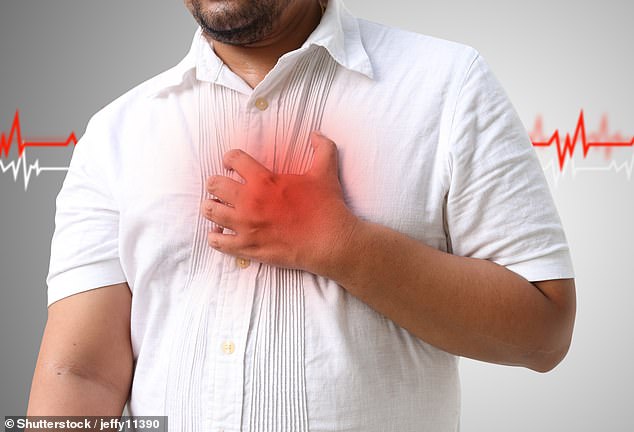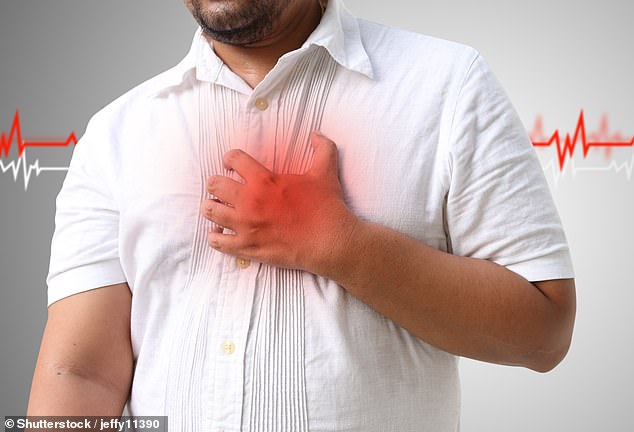The study found that measuring a person’s heart rate can help detect depression because it is beating faster and less likely to drop at night
- A study at Goethe University found that depressed people beat an average of 10-15 times per minute during the day
- Their hearts may have to work harder because their chronic stress or anxiety means they are always in a low-level state of “fight-or-flight”
- Inflammation from poor mental health may also reduce vagus nerve activity, which helps regulate heart rate
Measuring a person’s heart rate may be a way to determine if they are suffering from depression.
A study found that the hearts of depressed people beat 10 to 15 times per minute on average during the day.
Their heart rates decreased at night – which is normal because we are recovering from the stress and tension of the day – but less than people who did not have depression.
Scientists found this after tracking the heart rates of 16 people with depression and 16 people without depression over four days and three nights.
They were able to predict who was suffering from depression, based on heart rate alone, in up to 90 percent of cases.

Measuring a person’s heart rate may be a way to determine if they are suffering from depression. A study found that the hearts of depressed people beat 10 to 15 times per minute during the day. (File photo)
Experts believe that the hearts of depressed people may have to work harder because their chronic stress or anxiety means they are always in a low-level state of “fight-or-flight”.
Inflammation in the body caused by poor mental health may also reduce vagus nerve activity, which helps regulate heart rate.
The results suggest that people can spot the early signs of poor mental health on their own by using a 24-hour fitness tracker to plot their heart rate.
Dr Carmen Schweik, who led the study at Goethe University in Germany, said: “ Heart rates are usually higher during the day and lower during the night.
Interestingly, a decreased heart rate during the night appears to be impaired in depression. This appears to be a way to identify patients at risk of depression or a relapse.
Study volunteers, who were the same age in the depressed and non-depressed groups, wore small echocardiographic patches on their chest to monitor their heart rate day and night.
Previous evidence showed that people with depression have a higher heart rate, but this latest research found that the difference is up to an additional 15 beats per minute throughout the day.

Experts believe that the hearts of people with depression may have to work harder because their chronic stress or anxiety means they are always in a low-level state of “fight or flight.” (Picture of the model)
For the first time, people’s heart rates were shown to decrease at night if they were depressed.
Daytime heart rates, which also fluctuate less in people with depression, can be used to predict the condition with 81 percent accuracy.
Heart rates during the night were better, achieving an accuracy of 90.6 percent when a computer program analyzed the readings to provide a diagnosis.
The authors of the study, presented at the hypothetical conference of the European College of Neuropsychiatric Medicines, cautioned that heart rate may be a red marker for depression only in those with major depression.
The volunteers in the study, who had been diagnosed by a doctor, tried two types of antidepressants that didn’t work.
But if people can predict depression early, they can take action – by getting more exercise or seeking advice – to try to cope better.
If depression significantly alters heart rate, this could help explain its association with coronary artery disease and heart failure.







